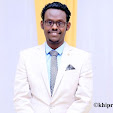MOGADISHU, Somalia — At first, the
coronavirus was just a fairy tale, a rumor along the dusty lanes of the
displaced persons’ camp that Habiba Ali calls home.
It seemed fantastical: an illness
sweeping the world far beyond Somalia’s borders, killing thousands of people
and sending some of the richest countries into panic.
 |
| Figure. Anesthesia Material and Devices; Right, Box in Intensive Care Unit, taken from |
Then Somalia's first virus case was
announced on March 16, and one of the world’s most fragile nations staggered
even more. Nearly three decades of conflict, extremist attacks, drought,
disease and a devastating outbreak of locusts have taken a vast toll.
Already vulnerable, millions of Somalis
now contemplate a new way to die.
We
have been overcome with an extraordinary fear about the disease,” Ali said as
she worried about her six children. “And we are even avoiding shaking hands
with people. Our fear is real, and we are helpless.
Even as mask-wearing health workers
entered her Sayidka camp in the capital, Mogadishu, to demonstrate lathering up
with soap and water, some authorities shuddered. Small children mimicked the
virus prevention measures, happily covering their mouths with their hands.
Somalia ranked 194th of 195 countries
in the Johns Hopkins Global Health Security Index for 2019 and scored zero in
several areas, including emergency preparedness, emergency response, infection
control practices and health care access.
The country lacks essential equipment
for the kind of intensive care that COVID-19 patients, sometimes gasping for
breath, desperately need, Health Minister Fawsia Abikar told The Associated
Press. Less than 20 beds in intensive care units are available.
Somalia also has lacked the capability
to test for the new virus, meaning samples are sent abroad and results delayed
for more than a week. Quarantine tents have been erected around an old port in
Mogadishu. As of Sunday, all international and domestic flights, except for
emergency medical and food cargo, have been suspended.
This
is a disease which has overwhelmed more sophisticated health care systems of
countries than ours, President Mohamed Abdullahi Mohamed warned in a public
awareness campaign.
A third virus case was
confirmed in recent days. The person infected is a contractor for the United
Nations at the heavily fortified compound at the international airport where
many diplomats and aid groups are based.
Somalia's fate depends in part on another, more dangerous
authority, the al-Qaida-linked al-Shabab extremist group that controls or holds
sway in parts of the central and southern regions.
 |
| Somali health providers working on an extreme medical circumstances in response to outbreaks (common; source) |
Al-Shabab often strikes in the heart of the capital, with
fighters detonating suicide bombs at checkpoints or infiltrating offices posing
as employees. Chances for infection also exist along major roads in Somalia
where the group operates a system of forced taxation.
While al-Shabab leaders recently met to discuss the coronavirus
as a precaution, the group has been hostile to humanitarian workers during past
emergencies. Few people expect anything different now.
Lessons from previous epidemics, including the cholera outbreak
in 2017, tell us that it’s unlikely they will allow humanitarian partners
access to areas that are in need,” the Somalia director for Action Against
Hunger, Ahmed Khalif, told the AP. But “they let people seek health care
(elsewhere) when they were overwhelmed by the numbers, so we expect a similar
reaction.
From his office in Mogadishu where desks have been pushed apart
for social distancing, Khalif worries along several lines.
Because of a
lack of governance over the years, Somalis have thrived on social networks that
are now threatened, he said. The warm personal embraces must end, even though
some people mistakenly think Somalia’s hot weather will defeat the virus.
And some 6 million Somalis
live in squalid conditions, many of them uprooted by past disasters. Most are
acutely hungry.
Hundreds of thousands cling to existence on the fringes of
Mogadishu, their homes of corrugated metal, even hanging cloth, jammed
side-by-side. Access to water is severely limited.
It’s going to be beyond anyone’s imagination," Khalif
said. "A widespread outbreak of the disease would be catastrophic to the
people who are already vulnerable.
The virus doesn’t discriminate among rich or poor, he said.
Elsewhere in Mogadishu, better-off citizens have rushed to stock up on face
masks, sanitizer and gloves.
“Demand is extremely high,” Abdulkhadir Muse, a pharmacist, said
as shelves emptied. ”The problem is that some people are buying and hoarding
marks to sell them at a higher price.”
Crowds of shoppers mingled in the city of 2.5 million people,
some still shaking hands in greeting.
The health system is showing strain. Some hospitals in Mogadishu
have turned away people with high fevers, several people told the AP, raising
the concern about possible stigma that those infected with the virus might
face. They spoke on condition of anonymity out of concern about that stigma.
If confirmed,
such practices could further discourage patients from coming out and seeking
medical attention, said Dr. Ali Hassan, an internal specialist.
Across town, deep in the
Sayidka camp, resident Yusuf Ibrahim contemplated being uprooted yet again.
Drought forced him from home three years ago.
“As displaced people, we are vulnerable,” he said. “If this
disease spreads between us, we will suffer.”
___
Guled reported from Nairobi, Kenya. Cara Anna in Johannesburg
contributed.











